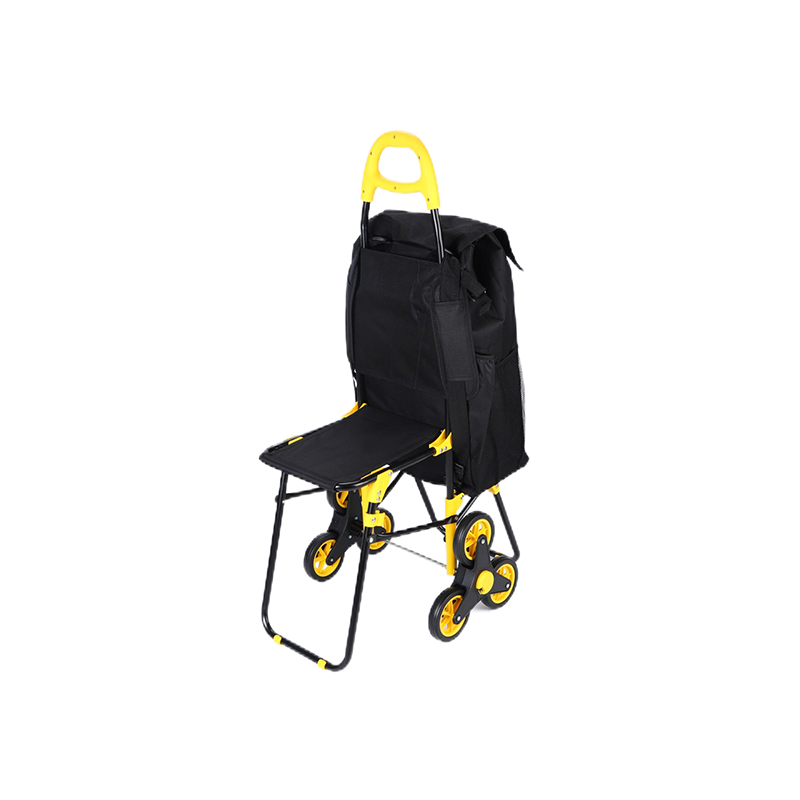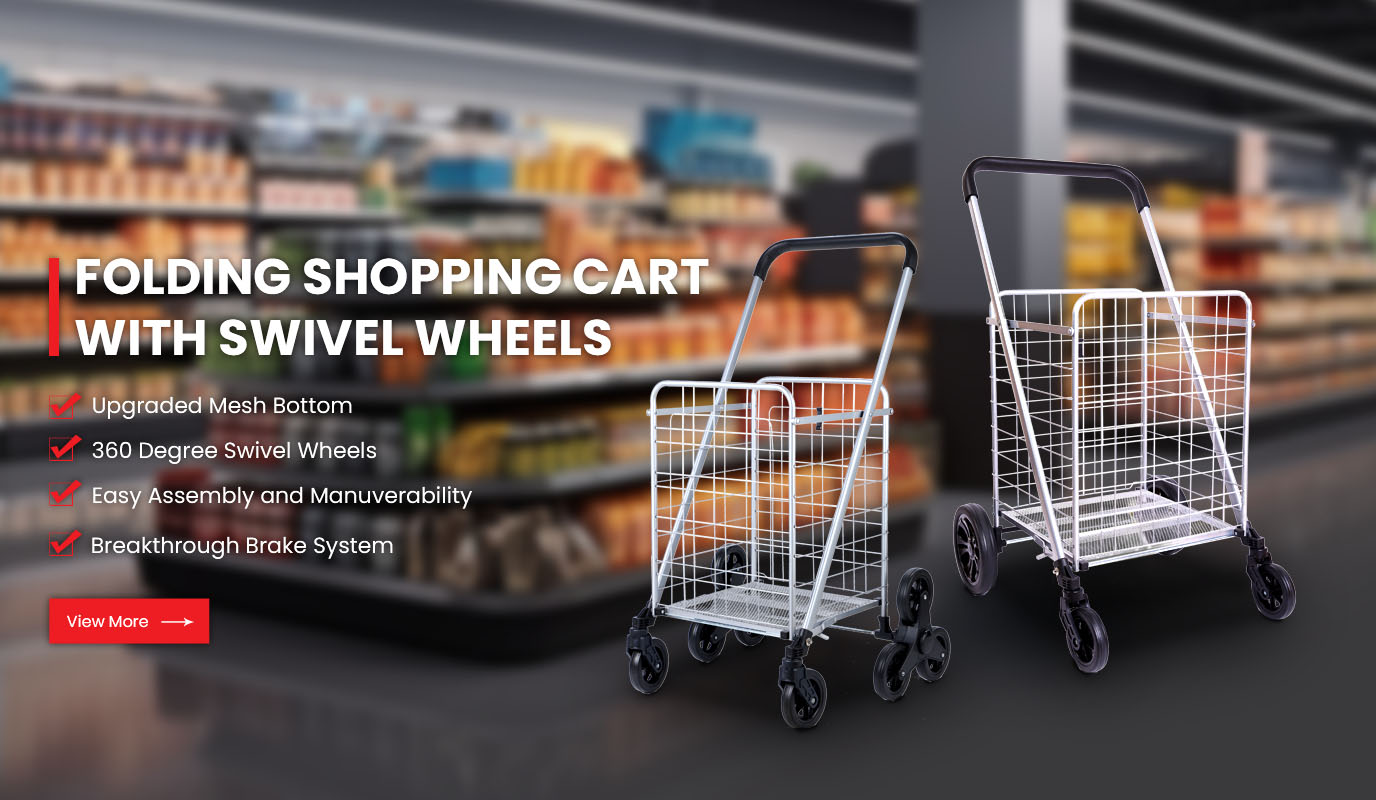How To Win Orders Through Labor Standards Audits?
BSCI certification: a "social responsibility pass" for global trade
BSCI certification is a supply chain social responsibility audit system initiated by the European Foreign Trade Association, covering 11 core standards such as labor rights, working environment, and business ethics. As of 2023, more than 23,000 companies worldwide have passed the certification, of which Chinese suppliers account for 42%. For labor-intensive product manufacturers such as shopping bag carts with wheels, BSCI certification is not only a threshold to enter the European and American markets, but also a core competitiveness to obtain orders from retail giants such as Walmart and Carrefour.
Certification value: from compliance to competitiveness
Market access: 85% of European buyers list BSCI certification as a mandatory requirement for supplier screening.
Cost optimization: The customs inspection rate of certified companies is reduced by 60%, and the risk of logistics delays is reduced.
Brand premium: The premium space of BSCI certified products reaches 5%-8%, and the customer renewal rate increases by 30%.

Four core values of BSCI certification
1. Improve market competitiveness: break the European and American order barriers
Take Shopping Bag Cart With Wheels as an example. Among Walmart's new suppliers in 2022, 93% have passed BSCI certification. Certified companies can access its supplier platform, and the probability of obtaining orders has increased by 3 times.
2. Improve supply chain management: reduce risks from the source
Labor rights compliance: ensure minimum wage and working hours compliance, avoid child labor and forced labor.
Production transparency: track the source of raw materials through the SCAN system, such as PP plastic particles need to provide traceable environmental certification.
3. Reduce legal risks: avoid tens of millions of fines
The EU's Supply Chain Due Diligence Directive requires that companies that do not meet social responsibility standards will be fined up to 2% of global revenue from 2024. BSCI certification can systematically avoid such risks.
4. Promote sustainable development: from "manufacturing" to "responsible manufacturing"
Carbon footprint management: Certification requires companies to measure and optimize carbon emissions throughout the product life cycle. For example, the carbon footprint of wheeled Shopping Bags must be reduced from 15kg CO₂/piece to 12kg.
Circular economy practice: Encourage the use of recycled materials in compliance with the EU "Packaging and Packaging Waste Regulation".
BSCI certification and cooperation with major customers: the "invisible threshold" behind the order
1. Major customer cooperation threshold: certification is the ticket
Walmart: Suppliers must reach BSCI audit level A or B, otherwise they will be directly removed from the list of qualified suppliers.
Amazon: Starting in 2023, 100% of home furnishing suppliers will be required to pass BSCI certification, otherwise the products will not be put on the shelves.
2. Certified order case: the counterattack path of wheeled shopping bags
Order volume growth: Annual orders increased from 500,000 to 1.2 million, becoming a core supplier.
Profit margin improvement: The unit price increased by US$0.8, and the net profit margin increased from 4% to 7%.
Delivery priority: Logistics cycle is shortened from 45 days to 30 days, and priority is given to the property rights.
Key actions:
Working hours compliance: Install a smart clock-in system to ensure that monthly overtime is ≤36 hours.
Environmentally friendly materials: Replace 20% of virgin plastics with recycled materials and pass GRS certification.
Employee training: 8 hours of social responsibility training per year, covering anti-discrimination, fire safety, etc.
Future trends: Upgrades and challenges of BSCI certification
1. Audit standard upgrade
From 2024, BSCI will add "supply chain carbon footprint tracking" and "renewable energy use ratio" indicators, and companies need to plan photovoltaic power generation and green power procurement in advance.
2. Technology-enabled audit
Blockchain technology will be used to verify raw material traceability data, such as the metal axle of the shopping bag cart with wheels, which needs to provide mining compliance certificates.
3. Support for small and medium-sized enterprises
BSCI has launched the "Small and Medium-sized Enterprise Fast Certification Channel", which reduces the audit fee by 30% to help small and micro suppliers break through the threshold.
BSCI certification has changed from an "optional bonus item" to a "mandatory survival item". For shopping bag cart with wheels manufacturers, certification not only means an increase in orders, but also a core springboard for transformation to sustainable development. Only by internalizing social responsibility into competitiveness can we take the lead in the reconstruction of the global supply chain.



